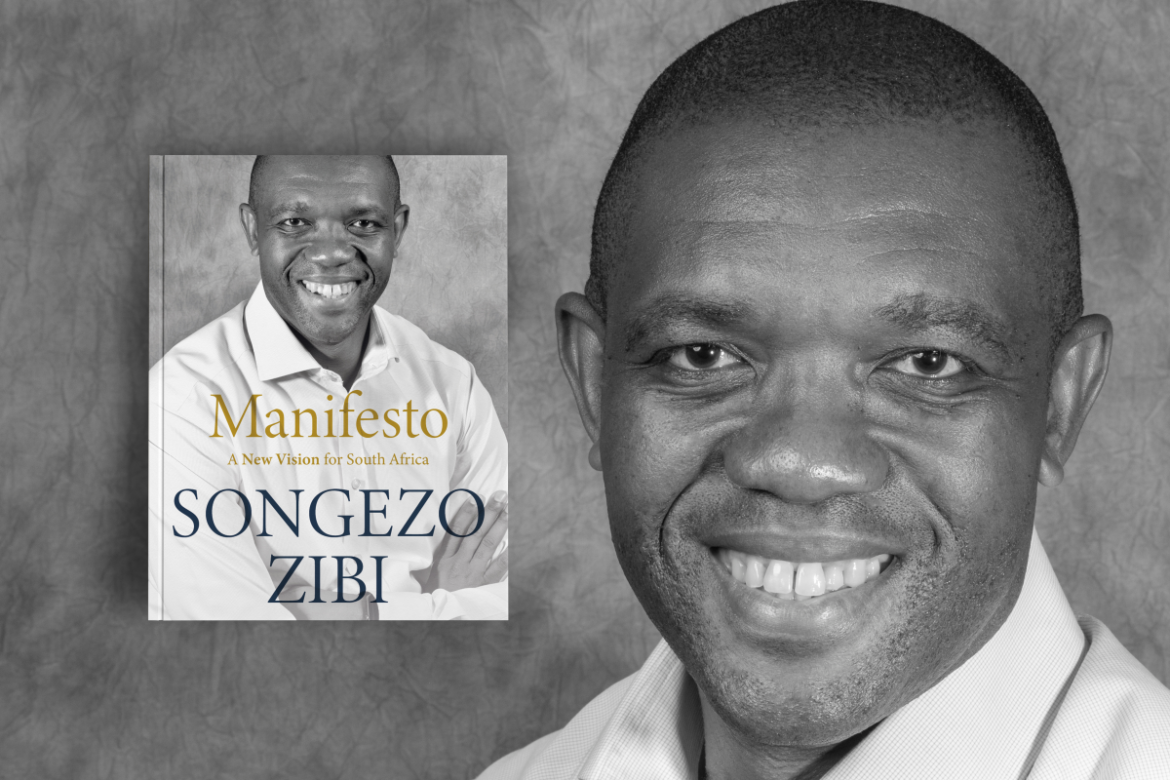Manifesto isn’t just a mere speech of ideals, frustrations, and hopes—it’s a critical prophecy and an unmistakable herald of where South Africa could end up lest we spurn Zibi’s words.
When Eskom escalated loadshedding to Stage 6 at 4 AM on the third Sunday of September 2022, images of a “ship listing and tilting through stormy waters”, as Zibi so delicately put it in Manifesto: A New Vision for South Africa, flooded my mind. During these dark times, literally and figuratively, President Cyril Ramaphosa was out in the UK to pay his respects to the late Queen Elizabeth II, the captain saying nothing about his troubled ship back home and his crew aboard. I thought about the failures of the ANC, the country’s ruling party, and our collective indifference as South Africans. That’s when everything came together. Manifesto isn’t just a mere speech of ideals, frustrations, and hopes—it’s a critical prophecy and an unmistakable herald of where South Africa could end up lest we spurn Zibi’s words.
“President Cyril Ramaphosa said nothing,” Zibi laments only after the second page. The theme of the number-one citizen (and the general population) doing and saying nothing takes on the shape of something like a signature refrain. Fearless, if you ask me. The fearlessness is matched only by Zibi’s unflinching approach to showing the country’s failings through prominent examples, like the controversies of the EFF, the mercurial doings of the DA, the inconsistencies of Eskom, and the Zuma-State Capture saga. The approach couldn’t hit anywhere closer to home than by highlighting the country’s issues by using Operation Dudula as an exhibit.
Zibi zeroes in on how the country’s dysfunction is largely a direct consequence of corruption and scapegoating. I found myself nodding at the pages. South Africa, in my eyes, has always been an escapist country; we use humour to escape everything that should be confronted head-on. We find jokes in everything, and, much to our dismay, we jest even about things we shouldn’t.
What convinced me the most about Manifesto and its ambitious scope was its unashamed posture and Zibi’s own fearless way of pointing at himself as being equally guilty of the current state of the nation’s decay. Calling Mzansi’s professional class “the cause of disappointment”, a class he also belongs under? That is clearly a man of Mandela’s heart during the Apartheid days, someone with lofty ambitions he’s more than willing to go to war for, even if it means laying down his life in the process.
The relatable quality of the book is also what gives credence to the sense of urgency in Zibi’s warnings and caveats. In numerous places, he looks back to his home village in the Eastern Cape (EC) and decries the poor service delivery. Now, I live in KwaZulu, okay? Yet, even though the service delivery where I live isn’t as overtly poor, the spectre is all too familiar—I understand that I belong on the same ship as Zibi. Perhaps the EC is the bottom-most part that gets flooded first, and KZN is one of the quarters a floor above. While the former will sink first, the whole ship is guaranteed to go down eventually. Zibi’s aim: everybody should be worried, from the ones below to those standing high up on the deck.

In all this, Zibi’s theme of silence persists. Yes, again—that’s how much he mentions it in the book, to good effect. Whenever he mentions silence, you get the sense that he’s about to allude to it being a corrosive killer in all aspects: politically, economically, and democratically. When the theme of silence is superimposed on the imagery of South Africa being a sinking ship, it paints a chilling narrative. Zibi conjures up a picture of people who are willing to give up their lives without putting up a fight. He shows the tragedy of people who are strong and wise enough to jettison what’s useless to keep the ship afloat but are so passive and demotivated that they are willing to sink with the ship instead.
Unlike many manifestos, especially those trumpeted by politicians, Zibi’s doesn’t lean on rhetoric and the power to hoodwink with empty promises and appeal to people through elaborate displays. This book is practical and easy to read and understand. Outlines of what the country needs on all levels (political, economic, and social) for there to be tangible results are clear and defined. Manifesto isn’t a book that sells hopes and dreams; it’s a verbal blueprint of what needs to be done and who needs to step up for this new vision to come alive.
All in all, Manifesto is the talk South Africans needed, at least those clear-headed and wide-eyed enough to see reality for what it is. It forces one to look beyond the rose-dimmed status quo that change will happen if we vote for the EFF or the DA or simply a new ANC under different leadership. It is a radical book that passes its verdict without forgetting to charge those involved: the active and the passive. To the latter, it teaches, with patience, that change will come from nowhere but within. To the former, it admonishes and challenges that more could still be done. However, its universal verdict stands: all should be doing something. And if all do nothing, the collective will meet its demise underwater, where the ship will go eventually.
A must-read, whether you’re politically inclined or not.
Manifesto can be purchased here: https://www.takealot.com/manifesto/PLID91015798


